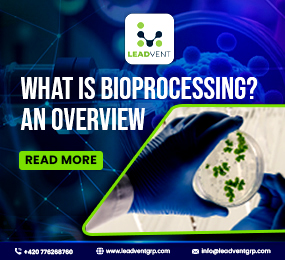As the world is gradually moving towards the complete automation of daily activities, it is becoming mandatory to develop advanced medical remedies for diseases. Believe it or not, personalised medicine has the magical potential to transform the way of treating particular diseases. In reality, it takes part in improving the outcomes. Advancements in biotechnology in the present era are allowing personalised medicines that are aimed at coming up with the cure for some specific health concerns.
Personalized medicine represents a shift from traditional one-size-fits-all treatments to more individualized approaches. Advances in genomics and biotechnology enable healthcare providers to develop therapies that target specific genetic markers associated with diseases. For instance, personalized cancer treatments can identify unique mutations in a patient's tumour, allowing for targeted therapies that are more effective and less toxic than conventional options. World Biomanufacturing Forum, 2024 is going to shed light on the production of personalised medicine and this event is going to gather the industry leaders to initiate a significant conversation regarding personalised medicines and their usage.
Understanding related to personalised medicine
Personalized medicine, often referred to as precision medicine, is revolutionizing healthcare by tailoring medical treatments to individual characteristics such as genetics, environment, and lifestyle. This approach not only enhances patient outcomes but also presents significant implications for biomanufacturing processes. As the demand for customised healthcare solutions grows, bio manufacturers must adapt their strategies to meet these new challenges and opportunities. The preponderance of personalised medicine in the upcoming years is going to alleviate the diseases and at the same time will leave no stone unturned to come up with ample patient satisfaction.
The Foundations of Personalised Medicine
Personalised medicine has its roots in the advancements of biologics and owing to its genetic variations, it takes part in influencing the specific response to the treatments. This approach undergoes several steps that are noted below.
Genetic Profiling
Analysis of a patient's genetic details allows the healthcare providers to identify the predispositions to certain diseases and accordingly paves a path for determining the right course of action. For instance, genetic testing can reveal whether a patient has specific mutations that make them more likely to benefit from targeted therapies.
Targeted Therapies
Significant advancements in the sphere of biotechnology also aid in development of the targeted therapies. Here the best part is that targeted therapies in reality direct their sole concentration on specific molecular targets for curing the disease entirely. For instance, trastuzumab is a targeted therapy available for patients suffering from breast cancer and it demonstrates an improvement in the cases of breast cancer.
Early Detection and Prevention
Personalised medicine also emphasises early detection and preventive strategies tailored to individual risk factors. Genetic testing can help identify individuals at high risk for certain conditions, enabling proactive monitoring and intervention that can lead to better health outcomes. Personalised medicine owing to this reason is absolutely ideal for diseases like cancer where early detection enhances the chance of recovery and saves the lives of the patients.
Advantages of Personalised Medicine
Unlike traditional medicine, personalised medicine is found to be way more effective. As per recent studies, 50% of patients are found to be getting benefit from the first dosage of the drug. On the other hand, for cancer treatment, personalised medicine is a promising solution. Let's take a look at the benefits associated with this new-age medicine.
- One of the most prominent advantages of personalised medicine is its ability to avoid adverse drug reactions.
- The application of personalised medicine in reality increases the compliance of the patients with the form of treatment. Even for the cases of chronic diseases like diabetes or asthma, this form of medicine proves to be more effective as noncompliance with treatment might exacerbate the condition.
- Personalised medicines are designed to cure ailments from its root and that's why it reduces the chances of trial and error.
Future Directions
Despite the plethora of benefits associated with personalised medicines, certain constraints are hindering the path of effective treatment. The regulatory landscape for personalised therapies is complex, as diagnostic tests and treatments are often reviewed by different agencies. Ensuring alignment between these processes is crucial for advancing personalized medicine. On the other hand, The development and implementation of customised therapies can be expensive. These treatments may ultimately reduce overall healthcare costs by avoiding ineffective therapies. Mainly the initial price tag of personalised medicine is obstructing the path of widespread adoption. However, the active endeavour of the researchers to derive funding and aid from the government can help to resort towards a stable future for precision medicine, leading to the high life expectancy of the people.
Case Studies
Warfarin Dosing
Genetic variations in enzymes that metabolise warfarin are leaving a positive impact on the patient’s response to anticoagulants. This form of personalised dosing in reality minimises the bedding complications. This case study exemplifies the requirement of precision medicine in the current scenario for the betterment of public health and an increased degree of patient satisfaction.
FAQs
1) How does personalised medicine differ from traditional medicine?
Personalised medicine considers the unique genetic plan for offering treatment to the patients for yielding positive outcomes.
2) How can patients access personalised medicine?
Through genetic testing and consultation with medical practitioners, the patients get direct access to personalised medicine.
3) How does personalised medicine impact healthcare costs?
Although the initial cost of personalised medicine is high, in the long run, it reduces the overall healthcare cost.
Final Thoughts
Personalised medicine represents a transformative shift in healthcare, allowing for more effective and tailored treatment strategies that consider individual patient characteristics. As advances in genomics and biotechnology continue to evolve, the potential for improved patient outcomes grows exponentially. With ongoing collaboration among researchers, policymakers and pharmacists, this form of medicine, in reality, helps to herald a bright future for all. The World Biomanufacturing Forum, 2024 is going to focus on the brainstorming discussion related to personalised medicine and to become a part of this session, connect with Leadvent Group today.














